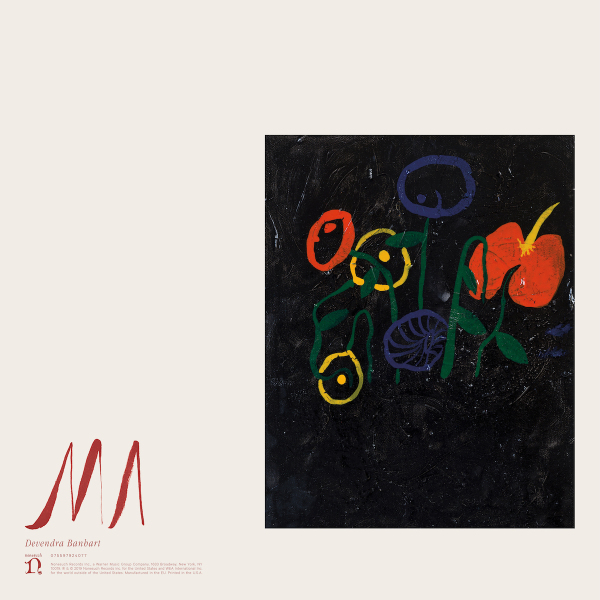Ma, recovering freak folkie Devendra Banhart’s eleventh album, is a post-mortem of sorts that finds Banhart in unflinching confessional singer-songwriter mode, earnestly exploring themes of death and loss, political oppression, and the mourning of what once was. During the three-year period that passed since he released Ape In Pink Marble, Banhart travelled to Caracas, Venezuela, to find the city in ruins, his family starving, and many old friends missing and presumably abducted or murdered. Compounding the trauma of it all, his mother passed away during this time, and her ghost haunts the album.
The first intimation of his mother’s death arises at the end of the surrealist video for the funky “Kantori Ongaku,” Ma’s first single, where Banhart tenderly embraces a saintlike, maternal figure. “Still there is no more beautiful place/ than the moonlight on your face,” he sings. He later confronts her death directly in the somber and haunting “October 12,” where he describes a heartrending scene in a hospital room where he is sitting vigil over his mother. As the walls reverberate with the electric hum of ventilators and his tears flow endlessly, he gravely questions whether she will reawaken and, in a quavering voice, pleads for his own escape from this awful moment. In “Abre Las Manos,” he remembers happiers times, evoking a childhood memory of dancing in his mother’s shoes, so young and carefree. Recounting his mother’s nurturing words of wisdom all those years ago, he sings them in her native tongue: “Spread your wings, the world is waiting for you/ your gift is that God’s protecting you.”
The heaviness of the album, however, is leavened with lighter fare such as the dreamy “Love Song” which evokes a childlike, ‘drunk-in-the-sun’ feeling as Banhart describes dancing “a hidden dance” in the clouds with his lover. The sensual “Carolina,” which is sung in Portuguese, likewise evokes a velvety, romantic haze. In the sweet and intimate “Ami,” he takes on the role of a nurturing protector (“I saw you gently weep and now I want to be a lion/ curled up at your feet, something to rely on”). The arrangements and instrumentation on Ma are rich and varied. “Memorial” which is faintly reminiscent of Leonard Cohen’s “Suzanne,” employ only his voice, light acoustic strumming and soft piano notes in the background to create a mood that’s delicate and ethereal. Other songs, such as “Ami” and “My Boyfriend_s In The Band,” erupt in full-on jazzy ensembles, complete with honking saxophones and blaring trumpets. “Abre Las Manos” uses the organic sounds of beating drums and xylophones to create a breezy Carribean ambience.
Ma is strong magic, complex and powerful. Although at times harrowing and heartbreaking, the album is ultimately an endearing ode to love in all its many forms — be it maternal, romantic or filial. Banhart ties it all together with a line from the beautiful “Will I See You Tonight_,” which sums up the spirit of the entire album: “I want everyone to know/ how very much I love them/ and never told them so.” — JASMIN ALVAREZ

